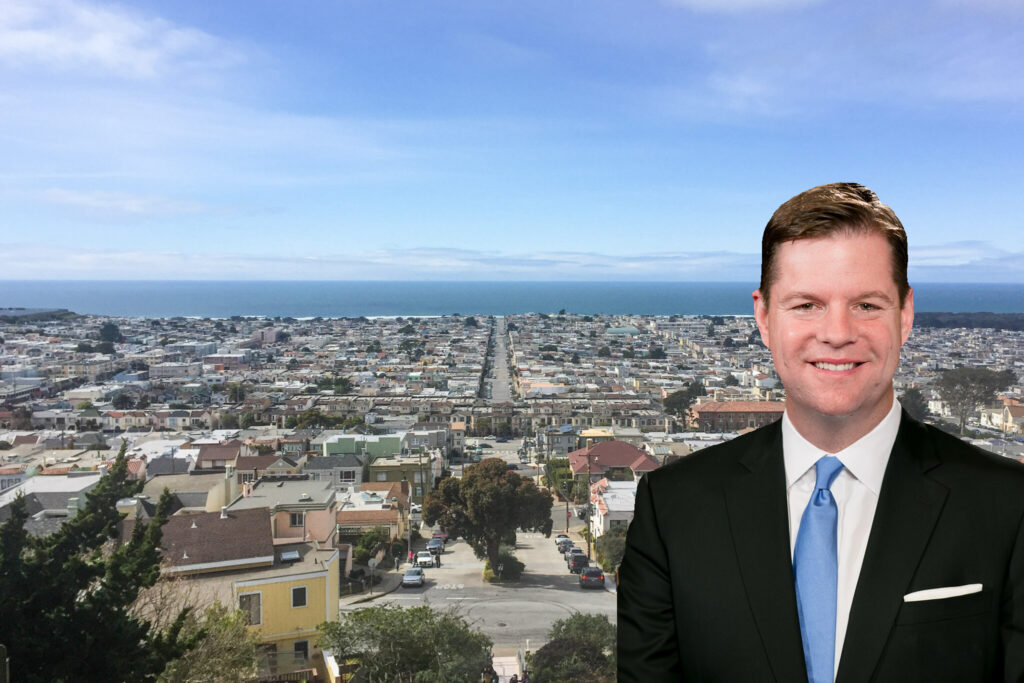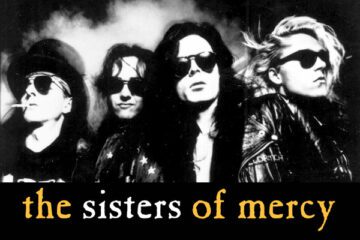Is Mark Farrell Pro-Housing Or Just Pro-Developers?
Mark Farrell intends to gut affordable housing requirements. Does that mean he’s pro-housing?
Our mayoral race is the single most important thing within the locus of voter control when it comes to housing. We have a “strong mayor” system, and whoever it ends up being will have an ungodly amount of say in how we meet the state’s demand for 82,000 new units, a whopping 46,000 of which MUST be affordable. So how does candidate Mark Farrell, who was a mayor for 169 days back before the pandemic, want to reach that goal?

Farrell’s Proposed Policy
Under Mayor Breed, San Francisco has already dropped the requirements for the minimum amount of affordable housing units a new building must include from 20-30% down to 12-16%.
But Farrell wants to take it further, down to just 10% of units. According to Farrell’s website, “reducing the requirement will incentivize more development and funding for affordable housing projects.” By building fewer cheap apartments, somehow we provide more? In order to make enough affordable housing under Farrell’s proposal, we’d need to build 460,000 total units.
Something smells fishy, and it’s not the polluted Bay. Once again, we’re asking whether we can make candidates wear a jacket that has all the corporations sponsoring them like Nascar (thanks, Robin Williams, for the brilliant idea).
First, What’s Pro-Housing?
If the only way you get your updates on housing policy is on Twitter, you might think pro-housing just means letting builders build. But housing isn’t just what we need to build. It’s also all sorts of other stuff.
While it’s obvious we have a serious housing shortage, what does it mean to be pro-housing? California allows cities to apply for a pro-housing designation. As of August 1, 2024, San Francisco is not on that list.
You know how pro-life is all about pregnancy and birth and they forget the rest of life, like education and nutrition and a roof over the baby’s head? Same thing here. Being called Pro Housing by someone in Sacramento doesn’t mean you care about housing justice.
NIMBY, YIMBY Explained
NIMBY (Not In My Back Yard) is no housing, no matter who builds it or how much a unit costs. These assholes are usually using housing as a way to be racist, classist, and generally insufferable neighbors. NIMBYs care more about views than Fox News.
YIMBY (Yes In My Back Yard) is pro-housing no matter who builds it or how much the rent costs. These are the kind of people who played wayyy too much of the Sims and think real life is just like it. If a YIMBY entered a gingerbread house competition, they’d build something so abominable the judges would vomit. (And then it’d probably sink like the Millenium Tower).
Neither of these terms involve nuances of tenant rights, rent control, eviction protections, public transit, and parking requirements. Nor do they get into who’s building, who the housing is intended for, who will manage the housing, or where the housing is.

Now that we’ve pissed off both ends of the spectrum: These are oversimplified names for complicated topics, and they focus primarily on building. Most people are somewhere in between, but the loudest ones are on either end. If you’re thirsting for tea or terribly bored, a fun activity is reading the YIMBY Wikipedia talk page where volunteer editors duke it out over the terms.
Affordable vs. Market Rate
Jackson Morsey, an urban planner who admittedly aligns more with the YIMBY crowd, explains that it’s “important to distinguish what people mean when they say affordable housing.” Market Rate housing is the going rate. Affordable is usually subsidized in some way.
Depending on the person you talk to, ‘affordable’ might mean cheap, not-bad, accessible if you have a good job or a trust fund. In San Francisco, affordable means it costs 30% or less of your income. [Read that SF Planning document. It’s helpful.]
Which candidates are pro-housing?
We’re going to assume you are a decently educated voter who already knows about the candidates for mayor. You are reading BrokeAssStuart.com after all. Maybe you’re even an obsessive voter who knows the candidates’ star signs or whether they know how to surf. (We’ve been wondering, but too lazy to look that up.) If you’re a single-issue voter and your issue is YIMBY, the endorsed candidate is Mayor London Breed.
We’re not here to make endorsements. We’re here to use our jester privilege to make fun of all the candidates money can buy, and there’s plenty of that in stock in San Francisco. If you DO want to read more about dark money or endorsements, we’ve covered it all – wait, that’s not sexy enough – bared it all?
And Now, Back to Housing…
Morsey argues, “In general, you can’t force developers to build affordable housing. You can only incentivize them by offering certain benefits like greater density if they include affordable units.” This is exactly why we have affordable housing minimums in San Francisco. Otherwise none would get built.
Like us, the current Mayor found The City too expensive to afford buying a home back in 2018 and lived in a rent-controlled apartment upon her election. Although she has dropped affordable housing minimums and some policy experts say she has not lived up to her promises, at least Mayor Breed’s policy includes a nod to the serious challenges facing affordable housing advocates.
Her reduced minimums are coupled with a task force which must identify sources for the long-term funding that affordable housing needs in order to be sustainable. Morsey says, “There is no easy solution. Any approach needs to be multi-pronged and targeted at creating a wide array of housing options.”

Morsey explains that The City must “also fund and rebuild public housing options for those most vulnerable and enable things like co-ops, land trusts, and non-profit housing through more government support.” Too bad none of these are in Mark Farrell’s proposed policy.
What Else Does Pro-Housing Mean?
For people who already have a roof over their heads, The City and its mayor can work on protecting tenants from unjust eviction, protecting and maybe even expanding rent control, all that good stuff that Mark Farrell’s policy page doesn’t mention. Oh, but he does suggest “property tax relief for property owners who rent their units to first responders, emergency personnel, nurses, and public school teachers.”
A major funder for Mark Farrell’s campaign is a rent control enemy. Scandals dog Farrell, from conflicts of interest in 2018 between his Thayer Ventures company saying they’d profit off his mayoral term to more recent ethics complaints. This time around, reporting from Mission Local shows that his funding might lead to even more troubled waters.
Morsey says of Farrell’s policy, “that’s an indication that the YIMBY political pressures are growing stronger.” But YIMBY dreamboat senator Scott Weiner just had his endorsement from the Harvey Milk Club rescinded. YIMBY voices are getting louder, but it won’t be clear until after this election if they represent the majority or just the rich.
Room For Collaboration?
One policy expert says the kind of alliances that regularly happen in NYC between the Democratic Socialists of America (DSA) and YIMBYs to create new housing for everyone is almost unthinkable here. There are obvious opportunities for housing justice and YIMBY people to collaborate, like whether we’ll build the promised affordable housing on Parcel K or whether we should vote yes on Prop 33 to expand and protect rent control.
The official YIMBY position against Prop 33, which is considered by housing policy experts to be a basic litmus test of giving a shit about poor and middle class people, is nothing short of a slap in the face to potential allies who agree that we need more housing. If it doesn’t pass, some worry rent control is on the chopping block. But Prop 33 has been twisted into “anti-housing” because it prevents landlords from jacking up the rent whenever they want.
Sources in the San Francisco housing policy world suggest that Mark Farrell is trying to play both sides. He needs the Westside voters, but he knows that explicitly suggesting we build more over there is going to cost him their vote. So his policy specifically blankets the already-dense neighborhoods of SoMa, Mission Bay, and FiDi, stating, “These neighborhoods have been ultra-dense from the start.”
History Lesson time!
The neighborhoods Farrell says have always been dense are in fact built on something called in-fill. Soggy, sinking, yes – you know what else is ultra-dense? The call might be coming from inside the lopsided condo.

Most telling, perhaps, is Farrell’s move to repeal Prop I, a November 2020 ballot initiative that asked voters to use transfer taxes to fill up our General Fund. Because in San Francisco we can’t tax income, the Transfer Tax is a big source of funding for The City’s budget. Farrell stuck his secret hope to repeal Prop I under Housing on his policy page, ostensibly to make it look like he’s cutting regulations to spur development. Maybe, but let’s look closer.
Prop I only applies to properties over $10 million. It’s also not even just housing, but commercial too, and we’ve seen already that there’s a huge churn of real estate right now. Businesses are hopping from one neighborhood to another, and it’s likely that more properties will exchange hands in the coming year. Could this be another way for Thayer Ventures to make money? After all, hotels are some of the giant shells rich people are shuffling around while us plebes hang out on the sidewalk.
Back to the Westside
Mark Farrell stuck his campaign headquarters on the Westside. He walked awkwardly down the Great Highway at the Taraval Night Market last weekend and just threw a meet-and-greet on Wednesday at one of San Francisco’s finest Westside establishments, the Riptide, because he’s convinced that voters in the Avenues are his ticket back into City Hall.
So what will the Avenues look like if Mark Farrell becomes mayor? Tough to say. Honestly, everyone familiar with housing policy that we spoke to for this piece agreed that the Westside is underbuilt and something’s gotta change given the state breathing down our necks. But lowering affordable housing minimums and, in general, giving developers carte blanche means big changes will come for the fog belt. If they elect Mark Farrell, that is.







